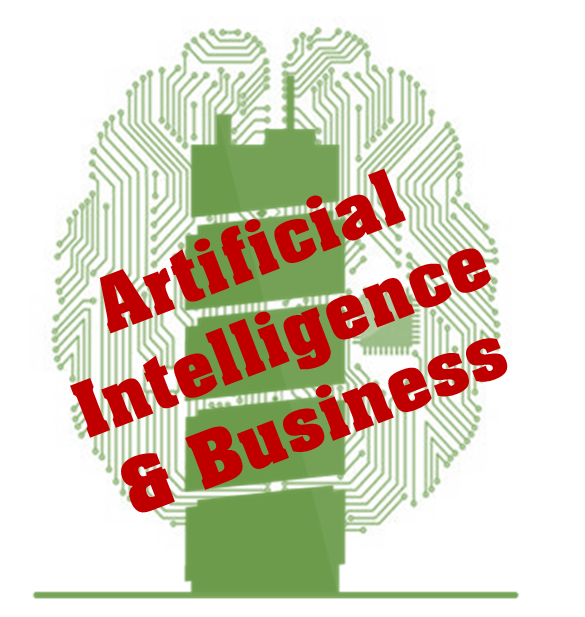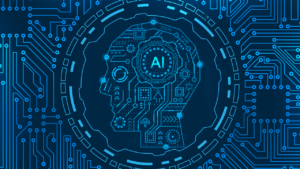While Hollywood has fostered the notion that artificial intelligence (AI) is out to destroy humankind, businesses have begun embracing AI to help them improve almost every facet of their operations. “There’s little doubt that artificial intelligence has the capacity to change the world,” writes Jonathan Moran (@jmmoran12), a senior product marketing manager for SAS Customer Intelligence Solutions. “That change first affected industrial and mechanical industries by assisting in mass production, but today businesses of all types are discovering the benefits of artificial intelligence in the workplace. Leading organizations are employing artificial intelligence to work alongside employees for more effective and efficient results.”[1] Scott Carey and Matthew Finnegan observe, “Most business are at very early stages, however, there are a growing number of examples where the technology is being used to optimize back office and consumer-facing systems and processes.”[2] They list ways some companies are already using AI. They are:
- Natural language processing AI bots to interact with customers.
- Deep learning to monitor and predict patient needs.
- Machine learning to help consumers with product and service selections.
- Image processing to inspect infrastructure.
- Driverless vehicles.
Those use cases only touch the surface of what artificial intelligence can do for businesses. Tom Simonite (@tsimonite) insists no industry can afford to ignore artificial intelligence.[3] His colleague, Jason Pontin (@jason_pontin), agrees with that proposition. “Extraordinary new technologies — cars that drive themselves through busy streets and personal assistants that seem to anticipate our every need — are already among us,” he told Simonite. “Every imaginable industry will need to reckon with this artificial intelligence sea change.” Because Hollywood has so skewed our understanding of AI, Brian Fung (@b_fung) believes most of us don’t “really understand about how the technology is actually developing, which in turn has a direct impact on the way we experience AI in the real world.”[4] Fung notes that a portfolio of technologies falls under the heading of artificial intelligence and each technology is developing at its own pace. Most current efforts, he notes, fall under the heading of narrow AI. These technologies are “designed with a specific purpose in mind: To help people do the things regular people do, whether it’s looking up the weather or sending a text message.” In the business world, they are designed to optimize processes, discover relationships, and provide actionable insights. They have no capability to take over the world and destroy mankind.
Nevertheless, thanks to Hollywood and science fiction writers, Lulu Chang reports that Americans don’t trust AI.[5] “After all,” she writes, “there’s something strangely … artificial about the computer-based brain. And while we may be interacting with AI systems more frequently than we realize (hi, Siri), a new study from Time etc suggests that Americans don’t believe the AI revolution is quite here yet, with 54 percent claiming to have never interacted with such a system.” She continues:
“While this proportion seems to speak mostly to the seamless integration of many such systems into our daily lives, the more interesting finding reveals that 26 percent of respondents said they would not trust an AI with any personal or professional task. Sure, sending a text message or making a phone call is fine, but 51 percent said they’d be uncomfortable sharing personal data with an AI system. Moreover, 23 percent of Americans who say they have interacted with an AI reported being dissatisfied with the experience.”
Bernard Marr (@BernardMarr) believes a little skepticism is healthy because AI has the potential to change the world and needs to be developed carefully and with purpose.[6] Like me, Marr is concerned about the long-term implications of smart machines replacing human workers, creating massive unemployment and social unrest. “Employees are often a business’s biggest expense,” he writes, “but does that mean it’s sensible to think of AI as primarily a means of cutting HR costs? I don’t think so.” He believes companies (and society) are going to be better off if smart machines are used to augment rather than replace human workers. “If you’re looking to generate value in the near future,” he states, “then thinking about ways to empower humans with technology, rather than replace them, is likely to be more productive.” Marr and I are not alone in this belief. Marr reports that Infosys CEO Vishal Sikka (@vsikka) is of a like mind. “Purposeful AI,” Sikka says, “is about leveraging technology to amplify people. We can automate the repetitive mechanizable tasks, we can capture the knowledge and know-how across people and long-lived systems and bring this knowledge back inside the systems to drive more value, and in doing these things we can free people to put all of our creativity, passion and imagination into thinking about the bigger opportunities ahead of us.” Deloitte analysts also believe augmenting human performance is a better way forward.[7] They explain:
“As cognitive technology evolves, it is likely to become just another tool in the toolbox — very useful for the right application but not replacing traditional analytics capabilities that also complement the human thought process. The man-machine dichotomy is not ‘either-or.’ It is unequivocally ‘both-and.’”
Thomas H. Davenport (@tdav), a Distinguished Professor at Babson College and a member of the Deloitte team, concludes, “Many human jobs will persist because smart leaders will realize that augmentation — combining smart humans with smart machines — is a better strategy than automation. Organizations that care about innovation, agile response to change, and high-quality customer service will realize the value that humans bring to such essential attributes of contemporary business. We’re beyond the Industrial Age, and we should move beyond automation as a way to improve our businesses.”[8] Moran notes, “Cognitive computing is the most widely used category of artificial intelligence in the workplace today. Businesses look to cognitive computing to handle complex, ambiguous situations and enable more ‘human-like’ interactions with software. These self-learning systems simulate human thought processes through data mining, intelligence automation and natural language processing. Cognitive computing is used across industries to deliver a better customer experience.” Like individuals mentioned above, Moran believes human/machine collaboration is the best path forward. He writes, “Humans working in concert with machines to classify and address customer concerns will be more and more widespread in the workplace and will produce faster, more effective outcomes and improve efficiencies.”
Moran concludes, “Artificial intelligence has the great ability to continually learn from and iterate on the data it collects — and inspires companies with the opportunities it promises. The more data collected and analyzed, the more powerful the machine becomes, and the better humans are able to work alongside these machines.” Although there are sound reasons for being cautious about the future of AI, businesses are going to continue to embrace narrow AI to improve their operations, gain new insights, and interact with customers.
Footnotes
[1] Jonathan Moran, “How AI is Reshaping the Business World,” CMS Wire, 12 May 2016.
[2] Scott Carey and Matthew Finnegan, “Seven uses of AI and machine learning in business,” Computerworld UK, 13 May 2016.
[3] Tom Simonite, “No Industry Can Afford to Ignore Artificial Intelligence,” MIT Technology Review, 23 May 2016.
[4] Brian Fung, “Everything you think you know about AI is wrong,” The Washington Post, 2 June 2016.
[5] Lulu Chang, “New study suggests Americans don’t trust AI systems,” Yahoo, 29 May 2016.
[6] Bernard Marr, “Why Artificial Intelligence Will Change Our World And Why It Needs To Be Purposeful,” Forbes, 25 May 2016.
[7] Forrest Danson, Adnan Amjad, Tom Davenport, Steve Gold, Jim Guszcza, Vivek Katyal, John Lucker, Beth Mueller, and Jon Raphael, “Analytics Trends 2016,” Deloitte, 2016.
[8] Thomas H. Davenport, “Automation Is So Yesterday,” The Wall Street Journal, 7 January 2016.





